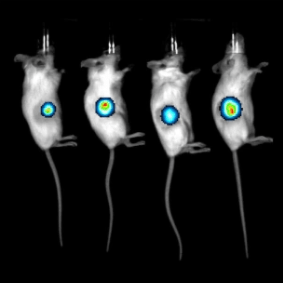Cancer cells killed by honeybee venom
Breast cancer, the most common cancer in women worldwide, may one day be treated using the venom of the European honeybee.
Dr Ciara Duffy from Western Australia’s Harry Perkins Institute of Medical Research has found that venom from honeybees can rapidly kill aggressive and hard-to-treat breast cancer cells. NCRIS-enabled facilities at the Centre for Microscopy, Characterization and Analysis (CMCA), UWA, were integral to the research, published recently in the journal Nature Precision Oncology.
Dr Duffy’s research has highlighted the molecular mechanisms for anti-tumour effects of honeybee venom using Microscopy Australia‘s live-cell confocal microscopy to characterise the specific effects on breast cancer cells.
The IVIS Lumina of the NIF UWA Node was used to track in vivo tumour growth in animal models treated with melittin (an active component of the venom), docetaxel (a chemotherapy drug), and a combination of both. The results were efficient in reducing the tumour growth of highly aggressive breast cancer subtypes, particularly when combined.
Research continues to elucidate toxicities, dosages, and delivery mechanisms in animal models before considering human interventions.
Further reading:



